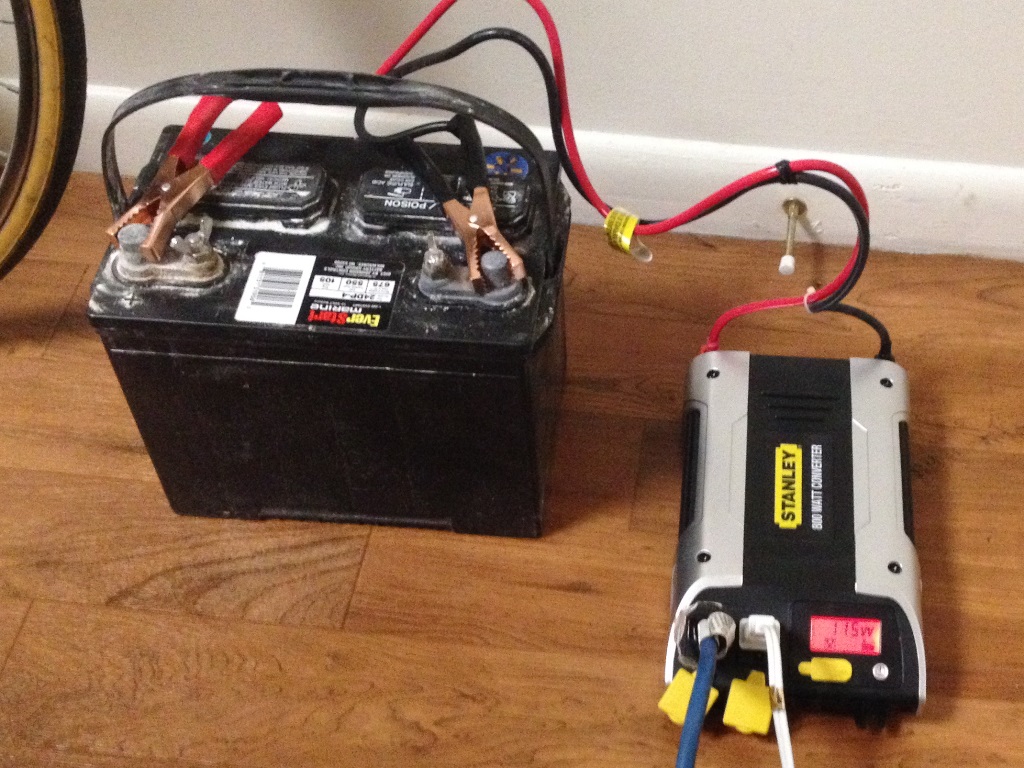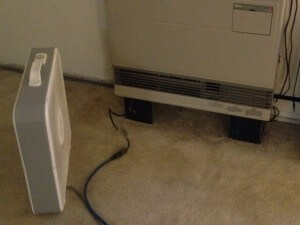With some inspiration from the potential snow storm last week, I endeavored to test my emergency preparedness for heating my apartment when the power is out. I never did lose power, but the test was successful and I am happy to know that if I did lose power in the winter, I can keep warm at home.
I attached an inverter to a marine battery, then plugged in my Rinnai heater and it ran just fine. The Rinnai does buzz a bit loudly, but that’s because the inverter does not produce a “true-sine-wave” signal. I tested the setup with a box-fan attached to the inverter as well and it worked fine.
With the fan and the heater both running on LOW the draw was 115W. Some quick and super dirty math approximations tell me that the battery (if fully charged) will run this about 11 hours. This would be longer if the box-fan isn’t running (less power would be used).
105 Amp hours (sticker value, full charge)
105 Amp hours x 12v = 1260 watt hours (approximate average voltage)
1260 watt hours / 115 watts = ~11 hours
Of course, the inverter can be run from any 12V source. My Honda Civic has an alternator with a faceplate rating of 70Amps. Some quick math tells me how much power this can potentially provide.
70 Amps x 12 Vdc = 840 Wattsdc
I believe the inverter is well within the ability for the alternator to run. So the car could potentially run the inverter as a generator as long as there is gasoline in the tank.
Check out the rest of the info and pictures at my blog.

